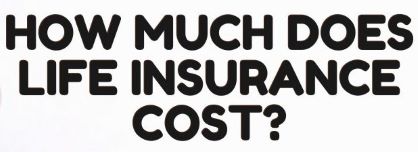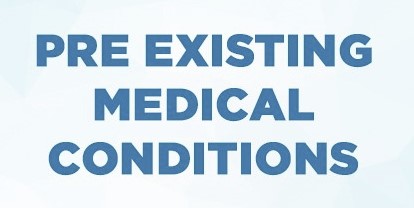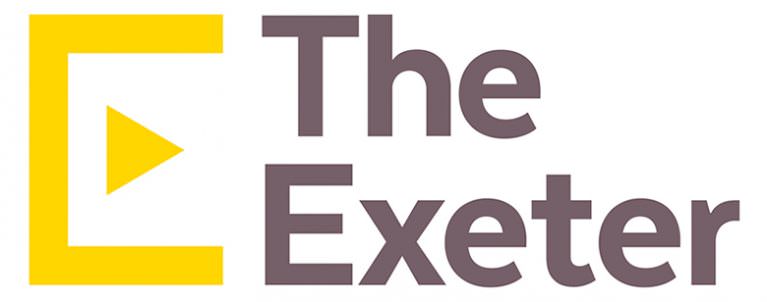Article on: 'Calculate Blood Pressure' > Quote Life Insurance High Blood Pressure
How to 'Calculate Blood Pressure' (BP)
Before we look at various health issues that may cause you to 'calculate blood pressure' & then it's impact on life insurance. Let's firstly look at your bodies 'machine' operating your blood pressure.
Your heart is your body engine muscle and is about the size of your clenched hand. It’s works on a 4/4 basis ie; it's made up of 4 chambers & contains 4 heart valves.
The heart valves open and then close all the time, without you normally being aware. They let blood move through the heart chambers, and then into and out of your heart. The success of this process let's you know how good your heart is working. Diastole is when your heart muscle relaxes and Systole is when your heart muscle contracts.
In this article we will therefore examine blood pressure causes, triggers, symptoms, diagnosis, types & medications. Then, finally how these may all affect terms for life insurance, critical illness, income protection & private health insurance.
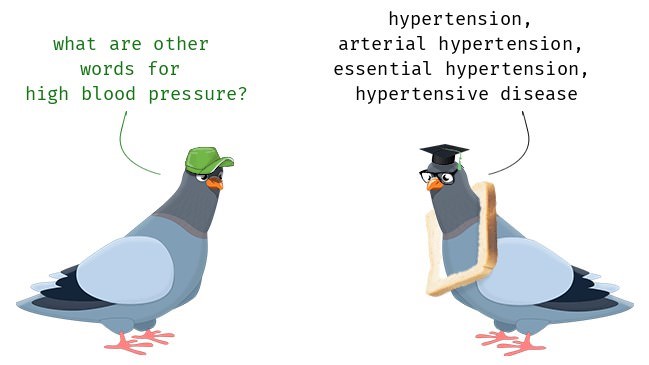
What's Good Blood Pressure?
Blood pressure is the force of your blood regularly pushing against the walls of your arteries. Every time your heart beats, it then pumps blood into your arteries.
So what's good blood pressure reading looking at the below BUPA chart are somewhere between 90/60 and 120/80. Anywhere above or below, could be causes for concern and we will look into this later on.
Your blood pressure reading uses these 2 numbers. Usually the systolic number comes before or above the diastolic number. For example, 110/75 means a systolic of 110 and a diastolic of 75.
Both systolic and diastolic numbers are important. Medical studies may show a greater risk of stroke and heart disease related to higher systolic pressures, compared with elevated diastolic pressure readings.
That is usually true in people aged 50 plus, which is why GP's may tend to focus on that top systolic number. The reason for the difference in risks maybe related to the force put on the arteries when blood rushes out of your heart.
However, your only way to check if you have what's good blood pressure, is to have it checked. Understanding your results is the key to controlling blood pressure. Note, you can usually get a free test at your GP surgery or buy a test kit.
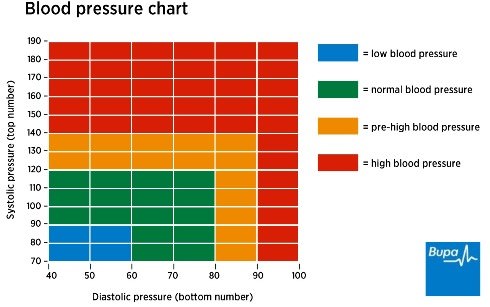
In Blood Pressure what is Systolic?
During a normal heartbeat, your heart is pushing blood out into your arteries. Doctors call this motion a "systole" = systolic blood pressure. In blood pressure what is systolic is therefore the top number used when doing calculations
It's the pressure during a heartbeat, hence the highest pressure measured when pumping your blood.
While a person is sitting quietly at rest, a BP reading of 120 or below, then your systolic blood pressure is considered normal.
What's Diastolic Blood Pressure?
When your heart is at rest or relaxes, between beats, your blood pressure then falls. As it relaxes, the chambers of the heart fill with blood, and a person’s blood pressure decreases. Doctors call this motion a "diastole" = diastolic blood pressure.
So what's diastolic blood pressure is this process & the bottom number used to calculate blood pressure readings.
Calculate Blood Pressure by Age
If you look at the chart below, you will see the different test readings if you calculate blood pressure by age chart. As you get older, the human body naturally adjusts and increases you blood pressure to this aging process.
As such, what is the maximum blood pressure for say an unfit 30 years old person, is correspondingly a normal chart blood pressure for a 60 years old person.
In other words, when someone says to you what blood pressure is good, the norm response is 120/80. However, this is a normal person's BP reading ie; this is for an average person, so it doesn't calculate blood pressure by age.
Age related blood pressure increases are a natural feature of our aging process. Among Westerners over aged 40, systolic BP (SBP) increases by ≈7 mmHg per decade, reaching an average of ≈140 mmHg by age 80.
However, it also does not take account of your circumstances either eg; are you wheelchair bound or are you pregnant. We will examine blood pressure for pregnancy later on.

Chart Blood Pressure
* What is normal blood pressure range?
Blood pressure (BP) follows a daily circadian rhythm, a 24-hour activity cycle that affects our sleep/wake patterns. This means it may naturally rise & fall during the morning, afternoon, evening & night time, if it was tested at various times. Blood pressure numbers of between 90/60 and 120/80 are considered what is normal blood pressure range to chart blood pressure readings. However, as we can see from the above chart it also depends on your age.
If your BP results fall into this category, then it usually means you have good healthy habits like a balanced diet & regular exercise. Let's understand what it could mean when you calculate blood pressure readings and they are above or below normal.
*Blood Pressure Low Causes? | Hypotension
Blood pressure low causes dizziness,fainting, blurred vision & feeling weak. Hypotension means your heart, brain, and other parts of the body aren't getting enough blood.
What blood pressure is too low is a BP reading of less than 90/60 mm Hg. Having low blood pressure doesn’t necessarily mean there is a problem, but it could be the result of another illness you have or medication.
Blood pressure low causes can be either side effects of certain medications or bodily function problems...
- Heart problems
- Endocrine problems
- Dehydration
- Blood loss
- Pregnancy
- Severe allergic reaction (anaphylaxis)
- Severe infection (septicemia)
- Lack of nutrients in your diet
- Water pills (diuretics)
- Antidepressants
- Alpha & Beta blockers
- Parkinson's disease drugs
- Erectile dysfunction tablets
If so, your GP may need to adjust your medication dosage as blood pressure low causes are varied, if what blood pressure is too low.
* What Blood Pressure is high? | Hypertension
Let's now look at What Blood Pressure is high. Hypertension means the force of your blood against your artery walls, is too high. It therefore may eventually cause you health problems, like heart disease. It is a common condition in people, so let's look at the 4 stages of hypertension & what high blood pressure numbers.
1] Elevated: Your blood pressure readings may range from 120-129 systolic and less than 80 mm Hg diastolic to chart blood pressure. People with elevated blood pressure are likely to develop high blood pressure unless steps are taken to control the condition.
2] Hyper-Tension Stage 1: Your blood pressure now may consistently ranges from 130-139 systolic or 80-89 mm Hg diastolic to chart blood pressure. At this stage of what high blood pressure numbers, GP's are likely to prescribe you lifestyle changes and may consider adding 1 blood pressure medication (based on your higher risks of cardiovascular disease, such as heart attack or stroke)
3] Hyper-Tension Stage 2: Your blood pressure now consistently ranges at 140/90 mm Hg or higher combined. At this stage, what high blood pressure numbers mean to GP's are your are likely prescribed a combination of 2 or more blood pressure medications and lifestyle changes to chart blood pressure.
4] Hypertensive Crisis: If your blood pressure readings suddenly exceed or remain above 180/120 mm Hg, contact your doctor immediately! What high blood pressure numbers now requires medical attention asap! You maybe experiencing a hypertensive crisis! As a result, your heart may not be able to pump blood effectively.
Night Shift Works?
Night shift works for some, however research studies found that those who worked mainly nights (but had frequent rotations alternating between day & night-time shifts) had a 4 x higher risk of hypertension compared to employees who didn’t work night shifts.
Even those who had few night shifts work, still had double the rates of high blood pressure, compared to non night shift works. The studies conclusion was it can mess up your body's natural rhythm's, in other words be aware should you choose this method of work.
Hypertension, Blood Pressure High in the Morning?
Blood pressure starts to rise a few hours before you wake up due to the body’s normal circadian rhythm. This rise in BP continues during your daytime, usually peaking into the middle of your afternoon. By late afternoon or evening, your BP should begin to drop lower again until your sleeping at night.
Blood pressure high in the morning is also known as Morning Hypertension. In the morning, the human body releases certain hormones such as adrenaline & noradrenaline. These hormones give your body energy boosts but can also raise your BP. This morning increase in BP is usually seen between 6 am & 12pm. Harmful effects can be seen if the BP rises too high at this time, and it can result in an increased risk of damage to your brain, heart and kidneys.
Morning hypertension could also happen in those with well-controlled BP. For life insurance purposes, it is important you advise the Insurers Morning Hypertension may occur during any health screening, to ensure you are not premium health rated wrongly. It could be you have to wear a 24 hour BP monitor to proove your readings are averaged, rather than spiked .
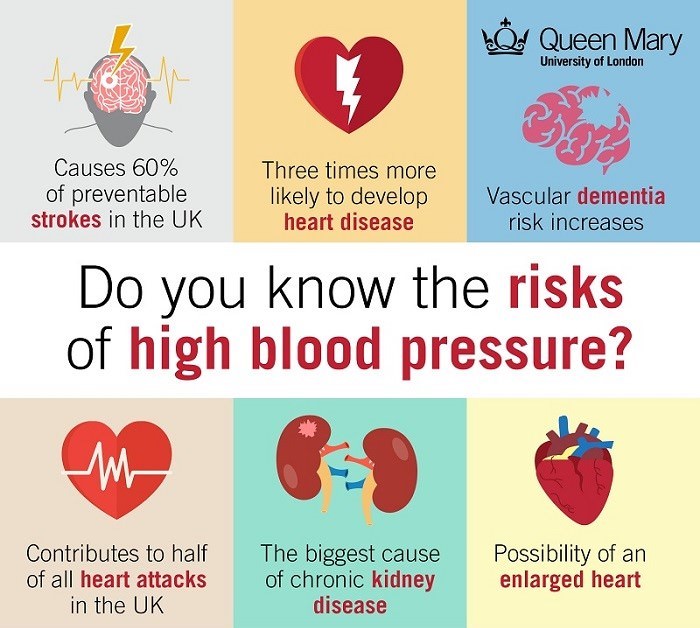
What are Symptoms High Blood Pressure?
Many people are unaware what are symptoms high blood pressure. However, here are some common indicators or signs to indicate your blood pressure calculator readings are raised.
- Severe headaches
- Nosebleed
- Fatigue or confusion
- Vision problems
- Chest pain
- Difficulty breathing
- Irregular heartbeat
- Blood in the urine
- Pounding in your neck,chest or ears
- Dizziness
- Nervousness
- Sweating
- Trouble sleeping
- Facial flushing
- Blood spots in eyes
As the list is many and varied as to 'what are symptoms high blood pressure' if unsure always contact your GP.
"Blood Pressure Calculator"
What High Blood Pressure Causes? | Top 10
What High blood pressure causes are many in people, so here are the Top 10 risk factors & in no particular order:
- Being Overweight or Obese: Raised BMI means, more blood is needed to supply oxygen and nutrients to your tissues thus increasing the pressure on your artery walls
- Family history: High blood pressure usually tends to run in families or familial
- Not Physically Active: In-active people tend to have higher heart rates, so the harder your heart must work. Lack of physical activity also increases the risks of being overweight
- Smoking: Smoking risks high blood pressure, as the chemicals in tobacco damage the lining of your artery walls. This cause your arteries to narrow & increases your risk of heart disease
- Too much Alcohol: Heavy drinking may give high blood pressure & can damage your heart ie; more than 1 drink a day for women & more than 2 drinks a day for men
- Race: High blood pressure is particularly common among people of African heritage, often developing at an earlier age than it does in white people
- Age: The risk of high blood pressure increases as you get older. High blood pressure is more common in men before age 65. Women are more likely to get high blood pressure after age 65
- High Salt (Sodium) Diet: Too much sodium or salt in your diet can cause your body to retain fluid. Sodium excess raises blood pressure
- Low Potassium Diet: Potassium helps balance the sodium in your cells. A good balance of potassium = good heart health. Low potassium causes sodium build up in your blood.
- Stress: High stress levels can also lead to a temporary increases in raised blood pressure.
Blood Pressure and Alcohol
Drinking too much alcohol increases blood pressure. If you have 1 or 2 'heavy drinking episodes a week', you increase your risk of raised blood pressure alcohol issues. NHS guidelines are if you wish to cut down the amount you do drink, a good way to help achieve this is to have several drink-free days a week.
So we can see that what high blood pressure causes are many & varied. It could be genetic on the one hand, like family history, heritage or age related. Alternatively, it could be various self related causes on the other.

Blood Pressure how to Lower?
Lowering Blood Pressure Medication
There are 5 main types of NHS lowering blood pressure medication often prescribed to help control what blood pressure is high.
Many people may need to take a combination of different lowering blood pressure medications.
- under 55 – NHS usually offer an ACE inhibitor or an ARB
- aged 55 plus or African or Caribbean origin, NHS usually offer a calcium channel blocker
1] Angiotensin-converting enzyme (ACE) inhibitors reduce blood pressure by relaxing your blood vessels. eg; enalapril, lisinopril, perindopril & ramipril.
2] Angiotensin-2 receptor blocker (ARB) work in a similar way to ACE inhibitors & prescribed if ACE inhibitors cause troublesome side effects. eg; candesartan, irbesartan, losartan, valsartan & olmesartan.
3] Calcium Channel Blockers (CCB) reduce high blood pressure by widening your blood vessels. eg; amlodipine, felodipine, nifedipine or diltiazem & verapamil,
4] Diuretics or water pills work by flushing excess water and salt from the body through your pee & prescribed if CCB cause troublesome side effects. eg; indapamide & bendroflumethiazide.
5] Beta blockers may reduce blood pressure by making your heart beat more slowly and with less force. They now tend to be used only when other treatments have not worked. eg; atenolol and bisoprolol.
When to Best to take Medication?
Patients in these studies to calculate blood pressure & who took their medication at bedtime, had significantly lower average blood pressure both at night and during the day. These studies chart blood pressure following the bodies body clock & daily circadian rhythms dipped more at night, when compared with patients taking their medication each morning.
Blood Pressure lowering Foods
Here are 10 blood pressure lowering foods to review. Also various supplements that may help on blood pressure, how to lower.
- Citrus fruits - oranges, grapefruit
- Salmon, Tuna & Fatty fish
- Lean Meat & Poultry
- Leafy Greens & Vegetables
- Nuts, Seeds & Grains
- Beans and Lentils
- Berries
- Carrots & Tomatoes
- Yogurt
- Herbs and Spices
You will notice that this diet leans toward a balanced rainbow of colours and is as nature intended, not man-made fast foods. Perhaps to start off with, try introducing some of this blood pressure lowering food into your life for part of your weekly diet ?

Beware of White Coat Syndrome
White Coat Syndrome Blood Pressure is a real medical condition. It occurs when some people's blood pressure is normal at home & everyday life. BUT because of anxiety and stress, they get anxious and tense as they start to think about situations that may then occur visiting a white coated medical professional.
This white coated medical professional could be say a GP, a Nurse, Hospital Consultant or a Dentist. Once sitting in the white coated medicals offices, their blood pressure gets raised. So, White Coat Syndrome Blood Pressure problems may therefore lead to misdiagnosis and unnecessary treatment.
For life insurance purposes, it is important you advise the Insurers this white coat effect may occur during any health screening, to ensure you are not premium health rated wrongly. It could be you have to wear a 24 hour BP monitor to proove your readings are normal.
Hypertension White Coat
Hypertension White Coat is a slightly different term but similar to white coat syndrome, or white coat effect. It refers to your blood pressure being higher in a GP surgery or hospital, regardless of what your numbers are, whether they’re high or low.
White coat hypertension studies to calculate blood pressure have found they are linked to double the risk of death from heart disease.
Blood Pressure for Pregnancy
A midwife will check your blood pressure for pregnancy at your usual antenatal appointments to calculate blood pressure. If you develop blood pressure for pregnancy for the 1'st time, you will usually be assessed by a midwife whose a specialist in this.
It’s usual for your blood pressure to change a little during your pregnancy. The hormone progesterone relaxes the walls of your blood vessels. This will make your blood pressure fall during your 1'st & 2'nd trimester. You may find you feel a little faint if you stand up for too long, or get up too quickly.
Your blood pressure is usually at its lowest during mid-pregnancy but then starts to rise gradually again during your last trimester. Your body naturally will change in pregnancy also. It will have made at least an extra litre of blood (to now help look after 2 people) which your heart then has to pump around your body.
Your blood pressure may return to its pre-pregnancy levels in the last few weeks before your baby is born. During labour, if you have mild or moderate hypertension, your blood pressure should be monitored hourly. As long as your blood pressure remains within targeted levels, you should be able to have a natural birth.
Pregnant
OR If you are pregnant already but have a history of high blood pressure already, then you should be referred to a specialist in pregnancy hypertension to discuss the risks and benefits of changing BP treatment.
Alternatively, if you're already taking medicine for raised blood pressure but now trying to get pregnant, then best talk first to your GP specialist. They could advise you to amend your medicine before getting pregnant.
High blood pressure in pregnancy, or hypertension however can sometimes be serious for you & baby. So please seek medical advice as needed. Note; For life insurance and pregnancy, raised blood pressure can affect terms offered. Contact us for Broker help.

Blood Pressure Pre-eclampsia | What is High Blood Pressure for Pregnancy?
Blood Pressure Preeclampsia is a problem with the placenta that usually causes your blood pressure to rise. If left untreated, high blood pressure for pregnancy (pre-eclampsia) can be dangerous for you and your baby.
Pre-eclampsia is more common if you have...
- Raised BMI
- High blood pressure before pregnancy
- Family history of developing pre-eclampsia
- Had pre-eclampsia in a previous pregnancy
- If over age 40
- Long age gap between births
- Expecting multiple babies
This health condition may affect some pregnant women, typically after 20 weeks. If you have 2 or more of these together conditions, your chances are higher for Pre-eclampsia.
What is high blood pressure for pregnancy for you, maybe different than other Mum's. A midwife will advise if your numbers are raised ie; (systolic) is 140 or more, and (diastolic) is 90 or more.
Can you get Life Insurance with High Blood Pressure?
As it's a common condition, life insurance with high blood pressure as a sole health declaration, could still mean standard rates for life insurance coverage ie; no requirements for any medicals or GP reports.
However, each Insurer is different and if it's been very recently diagnosed ie; last few months, then some UK Insurers may health rate your life insurance high blood pressure premium terms. So it's worth speaking to a broker to help you best shop around here.
in order to determine whether or not it is well controlled, please have your latest BP readings to hand to declare on the insurance application what blood pressure is high.
Unsure what the BP reading are? We recommend that you contact your GP surgery asap. If not, Insurers could automatically rate the premium by assuming your raised BP is not well managed, which is not what you want.
The Insurers underwritten insurance application questions typically asked...
- What age were you diagnosed with raised blood pressure?
- What were your latest readings & when taken?
- How many BP lowering medications do you take?
- Any associated health problems?
- Do you have associated raised cholesterol?
- Familial history of raised BP or cholesterol?
The insurance application naturally ask lots more questions eg; your height & weight, skirt or trouser size. From your BMI, they can work out if this a factor also to your raised BP.
Note: if you have various other associated health issues, then it could be that Insurers may not apply standard rates for life insurance and high blood pressure. Likewise, if you have only just been diagnosed, then some Insurers may also apply non-standard rates, until they see it has stabilized. We recommend you get broker help & advice here if unsure.

Is High Blood Pressure a Critical Illness?
This simple standalone answer for most UK Life Insurance Companies critical or serious illness policies ....is NO to 'is High Blood Pressure a Critical Illness.'
Critical Illness is an insurance policy that pays out a tax-free sum to help protect you, should you suffer a critical illness & become seriously ill. Any claim is as specified by the Insurers plan and during the policy term.
The top 3 critical illness coverage benefits are also for the top 3 claims of cancer, heart disease & stroke. It is therefore the basis around which most critical illness plans are setup.
Raised blood pressure is not considered critical or serious, as a 'stand alone' or listed condition. Naturally, left medically untreated, raised BP could potentially turn into numerous more serious or critical associated health problems...
Is hypertension a critical illness was the original query. However, it could now be you're sadly making a critical illness claim for a heart attack or stroke - caused mainly due to un-diagnosed or poorly controlled blood pressure.
In other words, it's your own personal responsibility to keep an eye on your own good health and have regular checks as necessary. As they say, there is only one YOU.
Types of Life Insurance with Blood Pressure
There are 2 main types of life insurance with blood pressure issues in the UK Protection marketplace:
1] Term Insurance
Term Life Insurance is a simple plan that pays out a cash sum if you die during the fixed time period your policy runs for. The sum for death insurance stays level for family lifecover or decreasing for mortgage protection, The premiums remain level whether you are near the policy beginning or end. Most plans also include free 'terminal illness' cover. You can choose options of Lump Sums or Family Income Benefits & also if you want your cover to be inflation proofed.
The longer the level term insurance runs, then the more expensive it costs ie; 40 years term maybe double or more the cost than 20 years, as the insurance risks are higher as you get older. You can take a term insurance plan upto age 90.
2] Whole of Life Insurance
Whole of Life Insurance policy, always pays out if you die ie; whenever (as long as you’re kept up with monthly payments). For someone with blood pressure issues, this maybe the most expensive compared to term insurance, as it will always payout.
Note: Over 50's Lifecover asks no medical questions, so could always be a choice if your blood pressure is poorly controlled or you have other bad health issues.
Consider placing the policy into trust to help avoid probate or Inheritance Tax IHT issues.
Broker FAQ
Importance of Disclosure & Claims?
All Insurers are in business to protect, insure & payout. Lifecover is therefore based on your full disclosure at the time you take the original policy out ie; being 100% as honest & accurate as possible. It is not always easy to remember all your historic health details when applying.
The Consumer Insurance Act 2013 says you must not be acting careless, deliberate or reckless manner when applying. If so, it may not payout ! eg; If you have raised blood pressure, then you must tell them (even if it costs more).
Should you make a claim, your Insurers will send you a claim form for you to complete. Once received back, they will usually contact your GP to confirm any health details.
They will then assess if your insurance claim is valid and cross check if you originally disclosed all the correct details. If you look at most Insurers recent claims payout, you will see that it is Good (but like most Insurers – not 100%).
What if my health changes after I have taken the policy out?
Any health or lifestyle changes since, usually does not void your existing life policy, if it wasn’t relevant at that time of initial application. It maybe the Insurers request GP reports when you originally apply, to check any health details disclosed. Likewise they may not.
So take care to doubly re-check on your application what you initially disclosed to the Insurers, as this information then stands now and in the future. Please check your original T&C’s.
Alternatively, if your own Insurers originally applied 'health rated terms' to calculate blood pressure then it can be worth reviewing your application. In this instance, it could be we can now get standard terms if your blood pressure control is better. Contact us for Broker help
Article on 'Calculate Blood Pressure' by Martyn Spencer Financial Adviser (2024)
For reassurance re health for men & women – we review many of the best Life Insurers selling Life Insurance in UK (inc NI)
NOTE: This generic article touches on various information re blood pressure calculator medical issues. The latest health guidance on this may change regularly re Covid 19, so any article comments may not always be accurate. However, we are not GP's or health professionals so always seek medical advice & latest guidance via NHS if unsure.
 Myself
Myself My
My My Income
My Income









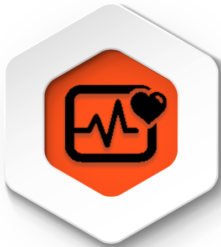 'There is...ONLY 1 YOU'
'There is...ONLY 1 YOU' 

